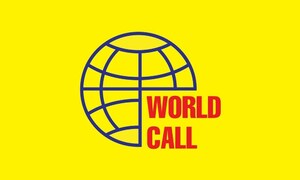ISLAMABAD: The Human Development Foundation (HDF) has asked the budget makers to introduce a bold tobacco taxation policy in coming budget (2024-25) in line with best international practices on taxation of tobacco products.
The Human Development Foundation convened a media briefing here on Monday to address the critical issue of tobacco taxation in Pakistan. Malik Imran Ahmad, Tobacco Control Activist, presented a compelling analysis of the current national-level tobacco control policies and emphasized the need for significant improvement.
Tobacco use is a leading cause of preventable death in Pakistan. The economic burden is equally significant, with smoking-related illnesses and deaths costing Pakistan 1.4% of its GDP each year.
Malik highlighted the staggering economic toll of tobacco consumption. Referring to a World Bank report, he said that there was ample room to increase tax on tobacco products.
“The government can generate additional Rs 65 billion from the industry by increasing the tax up to 26%,” he stated.
Malik presented a data-driven proposal for a 26.6% increase in the Federal Excise Duty (FED) on tobacco products. This strategic approach has the potential to yield a “triple win” for Pakistan: a reduction in the number of smokers by 517,000, a 12.1% increase in tax revenue for the government and a 19.8% recovery of healthcare costs associated with tobacco use.
Zahid Shafiq, Programme Manager at HDF, said that if the traditional forms weren’t enough, the tobacco industry has also flooded the market with novel products (nicotine pouches, e-cigarettes, and heated tobacco devices) which are openly sold to youth through point-of-sales advertising and extensive social media campaigns. There is a need to ban all forms of novel products immediately before our youth becomes addicted to them.
Further emphasizing the effectiveness of this approach, HDF offered an international perspective on tobacco taxation policies. By drawing on successful strategies implemented in other countries, Pakistan has the opportunity to curb tobacco use and generate substantial revenue to bolster public health initiatives.
The panel strongly urged the government to consider a significant increase in tobacco taxes. This policy change will not only generate substantial revenue for the national economy and healthcare system but, more importantly, it will save countless lives.
Copyright Business Recorder, 2024


























Comments
Comments are closed.